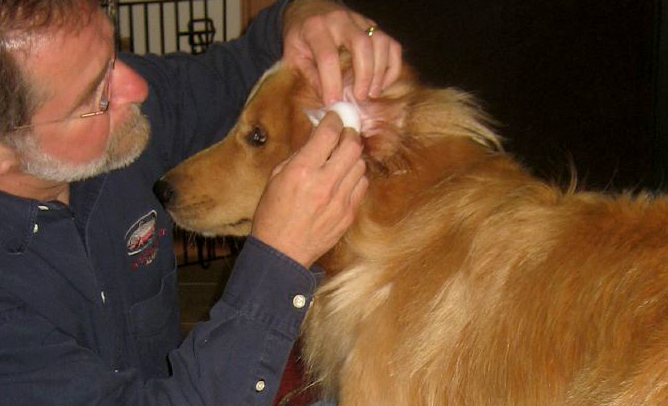Ear infections can be a big problem with some pets. Dr. Sandi Sawchuck is in to talk about how to determine when you should clean your pet’s ears and what method, cleaner and tools to use. She also talks about holiday stress issues for pets and answers your other pet care questions.
Featured in this Show
-
Infection In Your Pet's Ear May Be Hard To Spot
Ear infections in pets, as in people, can be very painful. And they are much harder to diagnose and treat in animals, said veterinarian Sandi Sawchuk.
“Our pets, being pets, sometimes don’t show us any signs of having an ear infection,” Sawchuk said. “Sometimes we have to be the investigator.”
She said things that may be an indication of an ear infection include:
- scratching around the ear
- an unusual smell in the ear
- not wanting to be touched near the ear
- shaking or tilting of the head, even a little bit
- redness
- discharge
She explained dogs and cats don’t have horizontal ear canals like humans, their’s turn down making it difficult to see into the ear. Sawchuk said comparing one ear to the other and looking for differences is a good way to tell if something is wrong.
She warns against trying to treat the condition by cleaning the ear.
“Sometimes when (pet owners) clean the ear before I see it, I miss that chance of seeing what is causing it,” Sawchuk said.
She added that ear cleaners contain drying agents and if the problem isn’t an ear infection, the cleaning solution could be very painful for your pet.
A pet showing symptoms of an ear infection should be seen by a veterinarian to get a correct diagnosis, Sawchuk said. A vet will not only look in the animal’s ear but do a full body exam to check for other clues. This is helpful in determining what is causing the problem. She said they will also run tests to check for parasites like ear mites, bacteria or yeast. In some cases a culture may need to be taken.
Some dogs are just prone to ear problems because of their anatomy – how oily their coat is, how much hair is in the ear and how the ear is shaped are all factors. But having allergies is the number one reason dogs get ear infections said Sawchuk.
To help prevent ear infections, she recommends checking the ears regularly and cleaning with a cleaner containing a surfactant to break up grease. She said some dogs also benefit from intermittent use of steroid ear drops.
Episode Credits
- Larry Meiller Host
- Jill Nadeau Producer
- Dr Sandra Sawchuk Guest
Wisconsin Public Radio, © Copyright 2024, Board of Regents of the University of Wisconsin System and Wisconsin Educational Communications Board.

